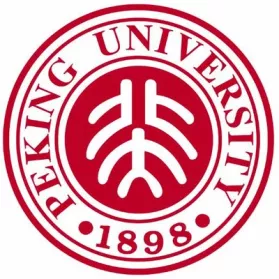China has been the world’s second largest economic powerhouse since 2010. With its thriving mega cities and favorable business environment, helping facilitate the rapid growth of cross-industry titans and innovators such as Tencent and BYD, it’s clear to see why.
As a result of China’s commercial landscape, opportunities abound across a wide variety of industries for graduates of top MBA programs who aim to boost their career prospects.
Take the MBA at Peking University (PKU) Guanghua School of Management, for example, where graduates go on to land roles at top multinationals across a range of sectors, including Procter & Gamble, ByteDance, IBM, JP Morgan, and Accenture.
So what is it about studying at a top business school in China that helps students make high-flying career moves? BusinessBecause spoke with two students on the PKU Guanghua MBA to find out.
Develop your business acumen
An MBA offers the chance to gain a holistic understanding of a business and its component parts. Classes cover finance, marketing, and anything in between. Curricular diversity provides students with the necessary knowledge to navigate complex business challenges and assume leadership roles after graduation.
“It’s really a great opportunity to have a broader view of a business, together with a variety of professional skills,” explains Qilong Liu, a former investment manager now studying on the PKU Guanghua MBA.
MBA-level teaching is rooted in the study of business cases, providing practical examples of the concepts and theories taught within textbooks. Studying at a top business school in China means covering cases that provide insights into the country’s unique business landscape.
At PKU Guanghua, this focus on Chinese business culture is also supplemented with more globally oriented courses such as China in Global Political Economy.
For Qilong, a native of mainland China who spent much of his education in the UK before moving back when beginning his career, this combined focus was important for his future plans.
“I figured out that if I'm going to spend the rest of my life in mainland China, then I should definitely study here because the business environment is really unique.”
Build your network and enhance your communication skills
The influence that an MBA can have on your career prospects goes beyond expanding your knowledge. Studying at a prestigious institution allows you to build your network, connecting with individuals who can provide first-hand insights into particular career paths, offer you strategic advice, and even connect you with job opportunities.
Professors who teach on the PKU Guanghua MBA include researchers who lead in their respective fields, as well as those who have extensive experience both in industry and on an international level.
Current and former students also play an important role in the network you can develop during your studies. Alumni, in particular, have been influential for Hong Po Kat, who enrolled in the PKU Guanghua MBA after several years in investment banking in Hong Kong.
“The decision to enroll in the program was heavily influenced by positive interactions with its alumni, who provided me with valuable career guidance and conveyed a sense of community I was eager to join,” he explains.
“PKU hosts an impressive array of over 200 student organizations, further enriched by the initiative to invite notable alumni for guest lectures. Thanks to these resources, combined with the connections made with my diverse cohort, I have significantly expanded my professional network within China.”
Gain practical opportunities and bolster your resume
Whether students enroll aiming to move upward within their current sectors or pivot into new ones, it’s the practical opportunities integrated within the MBA curriculum that can have the largest impact on their success.
All PKU Guanghua MBA students must complete an Integrated Practicum Project requiring them to consult on a real-world business issue for a client company. Hong Po Kat got the opportunity to work with the Fortune 500 firm, Danaher, where he was involved in all stages of the project, from pitching to presenting.
Midway through the two-year MBA curriculum, Hong Po Kat like many of his fellow students, was able to undertake internships. He spent an extended period working full-time for the technology firm, TikTok, learning the intricacies of everyday life working in the tech sector.
Since joining the PKU Guanghua MBA, Hong Po Kat has also been able to undertake a four-month exchange period in the US at the University of Michigan’s Ross School of Business, immersing himself in a new social and business culture.
Reflecting on the journey so far, Hong Po Kat feels the diverse range of practical opportunities he has gained during the program have helped drive him towards his next career step after graduation.
“The PKU Guanghua MBA curriculum is designed to provide pragmatic experiences that test and improve professional competencies,” he explains. “These applied experiences have equipped me with the confidence and skills required to thrive amidst future career challenges.”
So, studying a top MBA program in China can expand your knowledge, build your network, and enhance your professional experience. However, with such an array of opportunities available, how can you maximize the potential impact that enrolling in an MBA can have on your career?
For Qilong Liu, this is a central issue that students must be aware of as they navigate the MBA journey, with time management and a structured approach essential to success.
“It’s your choice how to deal with all the networking, deal with your studies, deal with your internship, and so on,” he says. “How you manage your time and how you manage the resources, that’s really important for MBA students.”
Image credit: (c) imtmphoto / iStock




